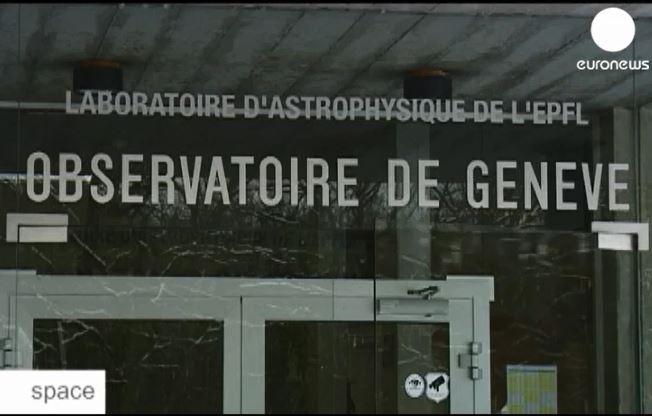
Swiss project launched to name exoplanet

What names would you give a distant exoplanet and its star located 100 light years away? The Swiss public have been asked to submit names for the celestial bodies discovered by Swiss astronomers 20 years ago.
Anyone living in Switzerland can sign up to the nameexoplanet.ch websiteExternal link to send in names for the exoplanet HD130322 b, which orbits the star HD130322.
The winning names will be selected after a public vote on October 10, the Swiss Astronomical Society (SAG-SAS)External link said on September 1 in an online statement.
Switzerland is not the only country asked to find names for exoplanets. This year on the occasion of its 100th anniversary, the International Astronomical Union (IAU) has launched a worldwide campaign “NameExoWorldsExternal link“, in which each country can name an exoplanet. The IAU is traditionally the organisation that gives celestial bodies their official names.
HD130322 b was discovered in 1999 by a team of astronomers at the University of Geneva led by Swiss scientist Michel Mayor. In 1995, he and his colleague Didier Queloz discovered the first exoplanet to orbit a sun-like star, 51 Pegasi.
The star HD130322 is located in the Virgo constellation and can be viewed using a small telescope. It is a dwarf star like our sun but is smaller and cooler, SAG-SAS said.
The exoplanet HD130322 b is thought to have a similar mass to the planet Jupiter and is probably a gassy planet that orbits closely around its star.
The previous global NameExoWorlds campaign was launched in 2015, but was much smaller, requesting names for 31 exoplanets and 14 stars.
Over the past 25 years, just over 4,000 exoplanetsExternal link have been identified, a sign of the explosion of discoveries from searches with telescopes on the ground and in space.

More
In search of worlds outside our Solar System

In compliance with the JTI standards
More: SWI swissinfo.ch certified by the Journalism Trust Initiative






























You can find an overview of ongoing debates with our journalists here . Please join us!
If you want to start a conversation about a topic raised in this article or want to report factual errors, email us at english@swissinfo.ch.